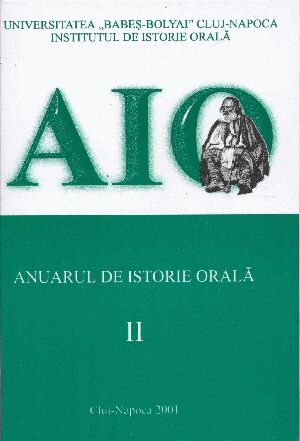Memoria închisorii Sighet
The Memory of Sighet Prison
Author(s): Andrea DobeşSubject(s): History
Published by: Argonaut
Summary/Abstract: Up to 1990 in Romania it was forbidden to write and talk about political prisoner. Although some of the people knew about it, about people disappearances, they knew well enough that the most atrocious "crime" was to talk about these "secrets". They were known by everyone and kept by everyone; thus, without being told - stated Hannah Arendt - "their reality became a nightmare". Together with the changes after 1989, the problem of the Romanian concentration became richer filled especially with "memory" literature„ Those books are important as a documentary source, taking into account the fact that they stand for eye-witnesses of the real facts. Moreover, the majority of the witnesses are aged so it can occur the possibility of loosing some very important information. Anyway oral history became more and more important. This study tries to underline different moments that put to light the conscienceness of people who witnessed the experience of Sighet. This prison was built by the end of the Nineteenth century initially for common prisoners. After the Second World War the prison became a political one; first prisoners were from neighbourhood, 18 young people, pupils and students who were engaged into an organization against communism. Since 1950 all Romanian dignitaries against the communist regime were brought to Sighet. So over 30 scientists (professors, historians) over 60 generals, heads of departments, parties and 13 bishops and priests were imprisoned there. Among them Iuliu Maniu (the president of National Peasant Party, former prime-minister of Romania, dead in Sighet in miserable conditions in February 5, 1953), Alexandru Todea (the future Romanian cardinal), Camil Demetrescu (former diplomat) etc. In order to build a real image regarding the atmosphere in prison we tried to confront a videotape with Vasile Ciolpan (the head of the prison during 1950-1955) with the interviews of different peoples imprisonned here in the beginning of the 50s. The differences are sometimes important. If Ciolpan talked about the care for the arrested, about the good food, the others reminded only of death, violence, hunger, misery.
Journal: Anuarul Institutului de Istorie Orală
- Issue Year: 2001
- Issue No: II
- Page Range: 447-459
- Page Count: 13
- Language: Romanian

